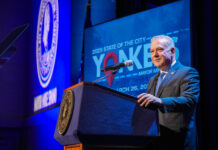
By Kelley Rich
As the interim vice president and associate provost for innovation at the University of Notre Dame, I’ve seen firsthand how universities are partnering with innovative startups to grow our economy and deliver life-changing new products to people across the country and around the world.
These partnerships simply wouldn’t be possible without an obscure, but hugely important, reform passed in 1980 known as the Bayh-Dole Act. Unfortunately, the National Institute of Standards and Technology, an agency within the U.S. Department of Commerce, just announced a new policy framework that would completely undermine Bayh-Dole — with potentially disastrous consequences for universities like ours.
To offer some historical perspective, prior to Bayh-Dole, if the federal government provided researchers grant funding, the government retained title to any patents that resulted from their work.
Under this model, the government rarely licensed those patents to companies that could turn potentially good ideas into viable products. Fewer than five percent of the nearly 30,000 patents held by federal agencies were ever licensed, meaning that taxpayers’ money was effectively wasted on sound research that never made it beyond the lab.
Bayh-Dole revolutionized American research with one simple change: decentralizing university intellectual property management from D.C. bureaucrats to folks on the ground at universities across the country. Now, commercialization professionals license universities’ innovations to companies, which have the resources and expertise to turn those insights into tangible products that transform people’s lives.
Consider my own institution. Using federally-funded research done at the University of Notre Dame, the IDEA Center — the University’s commercialization and entrepreneurship organization — has helped launch incredible startups that are working to be a force for good in the world. For example, Drone Response, provides first responders with an AI-driven command and control solution that leverages cutting-edge drone technology in life-or-death situations. Notre Dame is even helping advance new innovations in material science thanks to Tessellated, a startup that produces high-tensile-strength film that could be used to make aircraft lighter.
Notre Dame has helped launch close to 200 startups in total. These companies generated over $136 million in revenue and raised more than $86 million in venture investment in 2022 alone.
Notre Dame’s success is just one of many bright spots all across America. Over the last quarter-century, academic tech transfer supported by the Bayh-Dole model bolstered U.S. GDP by up to $1.9 trillion and helped create 6.5 million jobs. This model also fuels the formation of approximately three startups per day, with nearly 70% located in the same state as their home university.
As the global economy shifts towards high-tech, research-intensive industries, researchers consistently find that universities catalyze growth and boost wages for everyone by attracting and keeping talented folks and innovative companies invested in their local community.
Unfortunately, there’s a challenge emerging in Washington. The National Institute of Standards and Technology recently proposed a policy framework that would misuse the Bayh-Dole Act in a well-intentioned but misguided effort to lower drug prices. If the proposal moves forward, the entire innovation ecosystem could be at risk.
Because of Bayh-Dole, communities like mine are reaping the benefits of homegrown innovation. It’s time to reinforce this crucial piece of legislation, not undermine it.
Kelley Rich is Interim Vice President and Associate Provost for Innovation at the IDEA Center at the University of Notre Dame.





